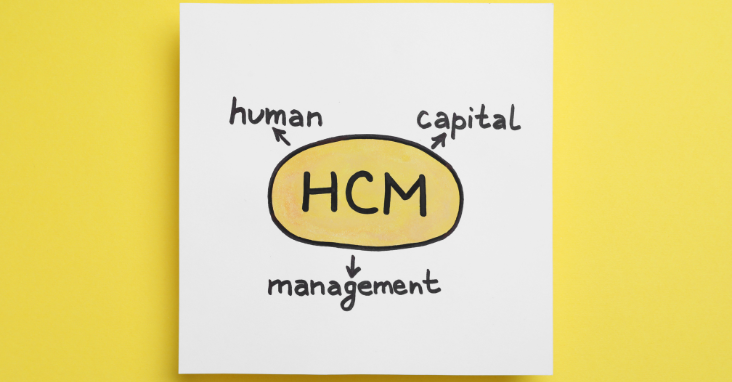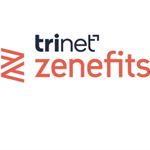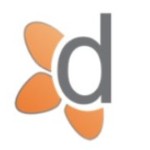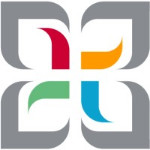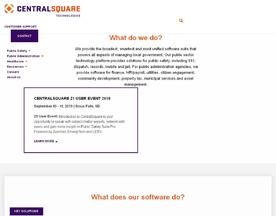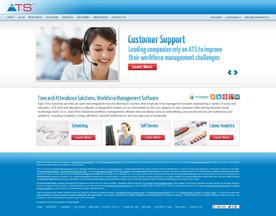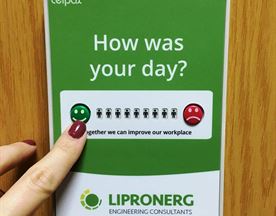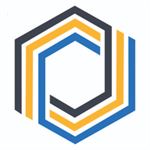In the realm of business, change is the only constant. Over the past few decades, we’ve seen transformative shifts in the way companies operate. With the rise of digitalization, globalization, and the consistent churn of innovative technologies, businesses are constantly evolving. Yet, one undeniable truth remains: the success of a business is intricately tied to its people. Indeed, while algorithms and automated solutions revolutionize industries, the heartbeat of any successful enterprise is its human component.
This importance of people within a company is encapsulated in the concept of “human capital.” Much like financial capital or technological capital, human capital represents the collective skills, knowledge, and abilities of a company’s employees. It’s the drive of the sales team, the creativity of marketers, the analytical skills of finance departments, and the innovative spirit of product developers. But managing this human capital isn’t straightforward. As businesses grow, so do the complexities of hiring, training, assessing, and retaining top talent.
So, how do contemporary businesses navigate these complexities? How do they ensure that their human capital is nurtured, managed, and optimized? Enter the world of Human Capital Management Software (HCM). As its name suggests, HCM software is designed to support businesses in managing their workforce. But this isn’t just about payroll management or attendance tracking. Modern HCM software solutions delve deep, integrating every facet of human resources and workforce management into one cohesive system.
From streamlining recruitment processes, automating tedious administrative and manual tasks throughout, to fostering employee development and engagement, HCM software represents the future of human resources. Its capabilities go beyond what traditional, HR management tools offered, providing businesses a competitive edge in a world where talent acquisition and management is pivotal.
But you might wonder, “What’s so special about an HCM software solution? How is it different from the HR tools we’ve had for years?” Well, dear reader, let’s embark on this enlightening journey together. In this comprehensive guide, we’ll dissect what HCM software truly is, its manifold benefits, and why, in this digital age, it’s not just an option but a necessity for businesses aiming for growth and sustainability.
Human Capital Management Software is an indispensable tool for modern businesses, ensuring streamlined HR processes, better team performance, and a boost in productivity.

What is Human Capital Management Software?
A Deep Dive into the HCM Landscape
At its core, Human Capital Management Software (HCM) symbolizes the intersection of technology and human capital management refers and resources (HR). In an age where everything is getting digitized, why should the HR department remain untouched? But an HCM system is not just another tech tool; it’s a transformative solution. Let’s dive deeper to understand its essence.
Definition and Core Functions
Human Capital Management Software is a comprehensive system designed to manage every aspect of an organization’s human resources function. Think of it as a Swiss Army knife for HR managers and professionals. Where traditional, HR management tools might have provided singular solutions — one for payroll, one for recruitment, and so on — HCM integrates all these key features, and more into a single platform. This consolidation is critical in an era where agility and efficiency are paramount.
At its heart, the HCM system aims to help businesses manage their most prized asset: their people. Here are some of the fundamental functions most HCM systems encapsulate:
Recruitment and Onboarding:
Gone are the days when hiring meant sifting through stacks of resumes. Modern HCM software offers end-to-end recruitment solutions. From posting job listings on multiple platforms, tracking applications, conducting online assessments, to finalizing the onboarding of new hires, the best HCM software solutions streamlines the entire hiring process together.
Payroll and Benefits Management:
One of the most intricate aspects of HR is managing payroll and benefits. With varying tax laws, diverse employee contracts, and multifaceted employee benefits and schemes, this can quickly become a nightmare. HCM software simplifies this by automating calculations, ensuring compliance, using employee records, global compliance, and benefits administration and making disbursements timely.
Performance and Talent Management:
People evolve, and so do their skills. HCM tools help managers keep a tab on the performance metrics of their teams. They facilitate periodic reviews, assist in setting objectives, and allow for real-time feedback. This not only aids in recognizing top performers but also in identifying areas for professional development.
Learning and Development:
The best companies are those that invest in their employees’ growth. HCM systems often come with modules focused on training and development. Whether it’s about onboarding new hires, upskilling seasoned employees, using employee skills or introducing them to new tools and technologies, the best HCM software has got it covered.
Time and Attendance:
While it might seem rudimentary, well managing employees’ time and attendance is crucial for both operational efficiency and employee morale. HCM tools offer key features, like digital time clocks, absence tracking, absence management and even integrations with biometric systems.
Data Analytics and Reporting:
With businesses becoming increasingly data-driven, HCM software doesn’t lag. These platforms provide powerful analytics tools that can mine workforce data and offer insights on everything from workforce management features recruitment funnel efficiency to employee turnover rates. Such insights are invaluable for decision-makers.
When you look at the breadth of these features, you realize that HCM software isn’t just another tool in the the HR team has shed. It’s a revolutionary platform that holistically addresses the multifaceted challenges of human resource management in today’s dynamic business landscape.
Key Points
HCM software is an all-encompassing solution for HR management.
It integrates recruitment, payroll, performance reviews, training, and more into one platform.
Advanced analytics tools within HCM systems provide invaluable insights for strategic decision-making.
With HCM, businesses can achieve greater efficiency, compliance, and employee satisfaction.
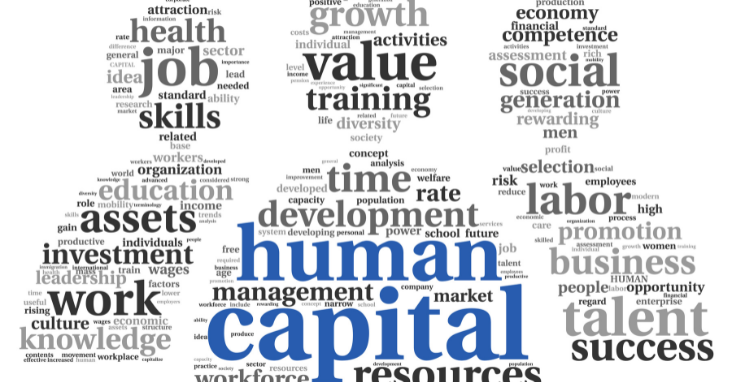
Benefits of Using HCM Software
Beyond Automation: The Transformative Impact of HCM
The true essence of Human Capital Management Software extends beyond mere digitization or automation. HCM serves as a strategic partner for businesses, providing a suite of tools and insights that can reshape the way organizations view and manage their workforce. But how exactly does it make such a profound impact? Let’s unravel the key benefits here:
Driving Productivity
One of the most immediate impacts of introducing an HCM system into an organization is the significant boost in productivity. And no, we’re not just talking about the benefits administration replacing paper-based business processes with digital ones. HCM software:
Reduces Redundancy: With an integrated platform, you don’t need multiple systems for different HR functions. This eliminates redundant data entry, ensuring consistency across the board.
Facilitates Cross-team Collaboration: HCM tools often come with features that allow for easy communication and collaboration. This ensures that teams from diverse departments can work seamlessly together on projects or tasks.
Automates Tedious Processes: Routine tasks like benefits enrollment or time-off requests become hassle-free, allowing HR professionals to focus on more strategic initiatives.
Enhanced Employee Experience
In today’s talent market, keeping employees satisfied is as important as attracting new ones. HCM software is pivotal in the employee progress and cultivating a positive workplace experience:
Empowering Employees: Modern HCM platforms come with self-service portals. These portals empower employees to handle many tasks themselves, be it updating personal information, checking benefits, or even requesting time off.
Transparent Performance Management: With features like real-time feedback and goal tracking, employees always know where they stand, ensuring there are no surprises during performance reviews.
Learning and Growth: The integrated learning modules in HCM tools mean that employees have easy access to training materials, courses, and growth paths, underlining a company’s commitment to their development.
Data-driven Decisions
In an era where data is the new oil, HCM provides businesses with a treasure trove of actionable insights:
Powerful Analytics: With in-built analytics tools, HCM software can offer insights on everything from hiring metrics to employee engagement levels. This can be invaluable for HR strategy formulation.
Predictive Analysis: Some advanced HCM tools even offer predictive analytics, helping businesses forecast trends. Whether it’s anticipating talent shortages or predicting turnover, HCM can be a crystal ball.
Customized Reporting: Every organization has unique needs. HCM platforms allow for customized reporting, ensuring that decision-makers have the exact data they need, in the format they prefer.
Risk Mitigation and Compliance
In the complex world of employment law, staying compliant can be a challenge:
Regular Updates: With ever-changing labor laws, keeping up can be tough. HCM software regularly updates to ensure compliance with the latest regulations.
Audit Trails: HCM tools maintain detailed logs of all actions. This is invaluable during audits or if any disputes arise.
Secure Data Handling: Modern HCM platforms prioritize data security, ensuring that sensitive employee information is always protected.
Key Points
HCM software drives operational efficiency, significantly boosting productivity.
It greatly enhances the employee experience, fostering satisfaction and loyalty.
With powerful analytics, HCM platforms aid in data-driven strategic decision-making.
HCM tools play a crucial role in ensuring regulatory compliance and risk mitigation.
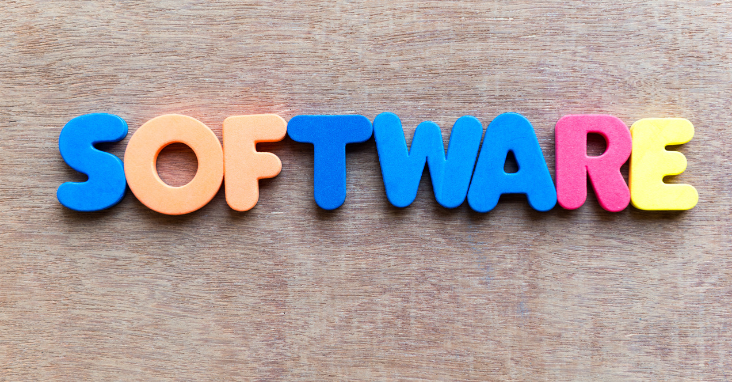
Software Tools to Consider
The Expanding Universe of HCM Solutions
The realm of Human Capital Management Software is vast and diverse. With the growing recognition of the importance of holistic HR and human capital management system, a plethora of tools has mushroomed, each bringing its unique strengths to the table. But with such a wide array of options, how do you zero in on the one that aligns perfectly with your needs? To assist you, I’ve curated a list of standout top HCM software vendors and tools that have been making waves in the industry.
Workday HCM
Workday is a leader in the HCM space, known for its cloud-based solutions that cover everything from the payroll processing to talent management. Its intuitive design, combined with advanced analytics capabilities, makes it a top choice for large enterprises aiming to streamline their HR processes.
Advantages: Unified Suite with Real-time Insights: Workday offers a unique advantage by unifying finance, HR, and planning into a single system. This seamless integration provides real-time insights and a consistent user experience across the platform. The cloud-based nature cloud based solution ensures accessibility and data consistency.
BambooHR
BambooHR is especially favored by small to medium-sized businesses. Its simplicity and user-friendly interface are its biggest draws. It excels in employee onboarding, performance management, and has a robust reporting mechanism.
Advantages: User-Centric Design with an Intuitive Interface: BambooHR is lauded for its user-friendly design, tailored for SMEs. This software emphasizes ease-of-use, allowing companies with smaller HR teams and departments to navigate complex HR tasks effortlessly. The self-service features empower employees to manage their profiles, benefits, and more, reducing the administrative load on HR teams.
ADP Workforce Now
ADP has been a giant in the payroll processing world for decades. With Workforce Now, they’ve expanded their suite to offer a full-fledged HCM solution. Its key strengths lie in its payroll processing, time, and attendance management, but it also provides excellent talent management and employee benefits and management modules.
Advantages: Extensive Integration and Customization: ADP’s longevity in the payroll management space has resulted in a tool that offers extensive integration options with other systems, from ERP to HR and financial management to finance. The customization allows businesses to tailor the software to their specific needs, ensuring they aren’t confined to a one-size-fits-all approach.
Oracle HCM Cloud
Coming from the software behemoth Oracle, this tool boasts a comprehensive suite of global HR and analytics solutions. Known for its scalability, it’s a favorite among large enterprises. Its AI-driven insights and predictive analytics set it apart from many competitors.
Advantages: Scalability Powered by Advanced AI: Oracle HCM Cloud is designed for large-scale operations, with powerful artificial intelligence capabilities that provide predictive analytics and automation. As organizations grow, the platform can handle increased demand without compromising on performance or speed.
UltiPro
UltiPro covers financial management for the entire employee lifecycle, from recruitment to retirement. Its dashboard is known for its real-time insights on employee performance and employee engagement. Additionally, it provides advanced tools for compensation management and succession planning.
Advantages: Holistic Employee Lifecycle Management: One of UltiPro’s standout features is its focus on the entire employee journey — the employee life cycle from pre-hire to retire. The tool’s capabilities in areas like compensation management, workforce planning and succession planning ensure that companies are prepared for long-term HR strategies and workforce planning, not just immediate challenges.
SuccessFactors
A product from SAP, SuccessFactors is recognized for its strong modules in areas like performance management, goals, and the learning management system. The platform integrates seamlessly with other SAP products, making it a strategic choice for businesses already invested in the SAP ecosystem.
Advantages: Deep Integration with SAP Ecosystem: For businesses that are already using SAP products, SuccessFactors provides deep, seamless integration. This ensures data consistency across the board and a familiar user experience. The tool’s strong modules in performance and goal management make it particularly beneficial for companies keen on fostering a high-performance culture.
Ceridian Dayforce
Dayforce is a single solution for HR, payroll, benefits administration, workforce management, and other talent acquisition and management. Its real-time data processing capability ensures that HR professionals’ decisions are always based on the most recent and relevant data.
Advantages: Real-time Data Processing: Unlike some HCM platforms that operate in batch processing, Dayforce processes data in real-time. This ensures that your HR analytics and management decisions are always based on the most current data, enhancing accuracy and responsiveness.
Key Takeaways to Remember:
Each HCM tool offers a unique set of features, targeting different needs and business sizes.
While some are tailored for large enterprises, others cater to the unique challenges faced by SMEs.
Advanced analytics, AI-driven insights, and user-friendly interfaces are becoming standard features in leading HCM platforms.
It’s crucial to consider the integrations, scalability, and long-term support offered by an HCM solution before committing to it.

FAQs
The world of Human Capital Management Software can be vast and sometimes overwhelming. Let’s address some of the most common questions that pop up when businesses consider integrating or updating their best HCM software solutions.
1. What exactly does HCM software encompass?
HCM software is an all-encompassing digital solution designed to manage and optimize a company’s human resources operations. From recruitment, to payroll management, expense management, performance evaluations, to talent acquisition, management tools and learning modules, a robust HCM solution touches upon every phase of an employee’s lifecycle within an organization. It ensures that HR processes are streamlined, consistent, and efficient.
2. How is HCM different from HRIS or HRMS?
While these terms are often used interchangeably, there are subtle distinctions:
HCM (Human Capital Management) focuses on treating employees as assets (or ‘capital’) whose current and future value can be measured and enhanced through various tools and strategies.
HRIS (Human Resource Information System) is more about the database system used to manage people and company policies.
HRMS (Human Resource Management System) is a combination of systems and processes that connect human resource management and information technology through HR software.
In essence, while all three aim to streamline core HR systems and processes, HCM has a broader, more strategic scope.
3. How does HCM software benefit small businesses?
Even for small businesses, managing human resources can become complex. HCM software vendors can:
Automate routine tasks, freeing up time.
Provide tools for more effective recruitment and onboarding.
Offer insights into employee performance and areas of improvement.
Ensure compliance with labor laws, which can be particularly challenging for small businesses without a dedicated legal team.
4. Is data in HCM software secure?
Top-tier HCM solutions prioritize employee data security. They often come with features like encryption, regular backups, and two-factor authentication to ensure that sensitive employee information remains protected. However, it’s crucial for businesses to conduct regular security audits and choose providers with a solid track record in employee data protection.
5. Can HCM software integrate with other business tools?
Absolutely! Integration capabilities are one of the major selling points of modern HCM platforms. Whether it’s your ERP system, finance tools, or other SaaS platforms, a good HCM solution will often provide seamless integrations, ensuring data consistency and reduced manual data entry.
6. How does HCM software aid in employee development?
Many HCM tools now come with learning and career development and modules. These modules allow businesses to:
Offer training courses.
Track employee skill development.
Set and monitor performance goals.
Provide feedback in real-time.
This proactive approach benefits management ensures employees have clear growth paths, leading to higher satisfaction and retention rates.
7. Is implementing HCM software a long process?
The duration varies based on the tool and the size of the organization. While setup and migration can be time-consuming, many providers now offer implementation assistance to ensure a smoother transition. Regular training and post-implementation support can further alleviate challenges.
8. Can HCM solutions adapt to changing business needs?
Flexibility is at the heart of leading HCM solutions. As businesses evolve, the software can be scaled up, new modules can be integrated, and custom features can be added. This adaptability ensures that as your HR challenges grow, your HCM tool evolves in tandem.
9. Do employees need training to use HCM platforms?
While most modern HCM solutions prioritize user-friendliness, training is beneficial. It ensures that employees can leverage the tool’s features to the fullest and avoid common pitfalls. Many top HCM platform providers offer training resources or sessions as part of their package.
10. What should be my top considerations when choosing an HCM solution?
When selecting an HCM tool, businesses should consider:
Integration capabilities with existing systems.
User-friendliness and employee training needs.
Scalability for future growth.
Security features to protect sensitive data.
Customization options to cater to unique business requirements.
Furthermore, reviews, case studies, and peer recommendations can provide invaluable insights.

Conclusion
As we draw this exploration to a close, it’s evident that Human Capital Management software has firmly cemented itself as an indispensable tool in the modern business ecosystem. In an era where the global workforce that’s aspirations, needs, and dynamics are continually evolving, HCM solutions offer the precision, agility, and foresight businesses need to thrive.
The transformative potential of a well-chosen HCM tool is profound. It not only streamlines complex HR processes but also paves the way for a more engaged, motivated, and high-performing workforce. By offering a unified platform where multiple core HR functions converge, businesses can foster a culture of continuous learning, feedback, and growth.
However, as with any significant investment, the key lies in making an informed choice. As we’ve seen, the spectrum of HCM tools is vast, each with its distinct advantages. Businesses must critically assess their unique requirements, growth trajectory, and existing infrastructure before making a selection. The idea is not to find the ‘best’ HCM tool in an absolute sense but to identify the one that aligns seamlessly with your business’s ethos and goals.
Moreover, the implementation of best HCM software solutions isn’t just about the technical aspect. It’s a cultural shift. Ensuring that your entire workforce is is onboarded, trained, and comfortable with the new tools is paramount. After all, the ultimate aim of any best HCM software solution is to empower employees, providing them with avenues for personal and professional development.
In this age of digital transformation, the saying ‘people are a company’s most significant asset’ has never rung truer. As you embark on your journey of integrating or upgrading your HCM solution, remember that it’s not just about software. It’s about crafting a brighter, more sustainable future for your human capital. human capital management hcm
Key Points
HCM software is not just a tool; it’s a strategic investment in the future of your workforce.
An informed choice, based on specific business needs and goals, is essential.
Beyond software, the human aspect — training, onboarding, and continuous support — is pivotal.
The journey with HCM is about holistic growth, both for the organization and its employees.

